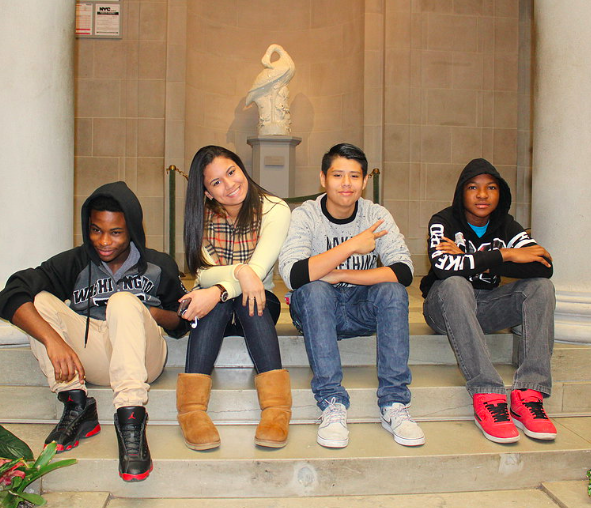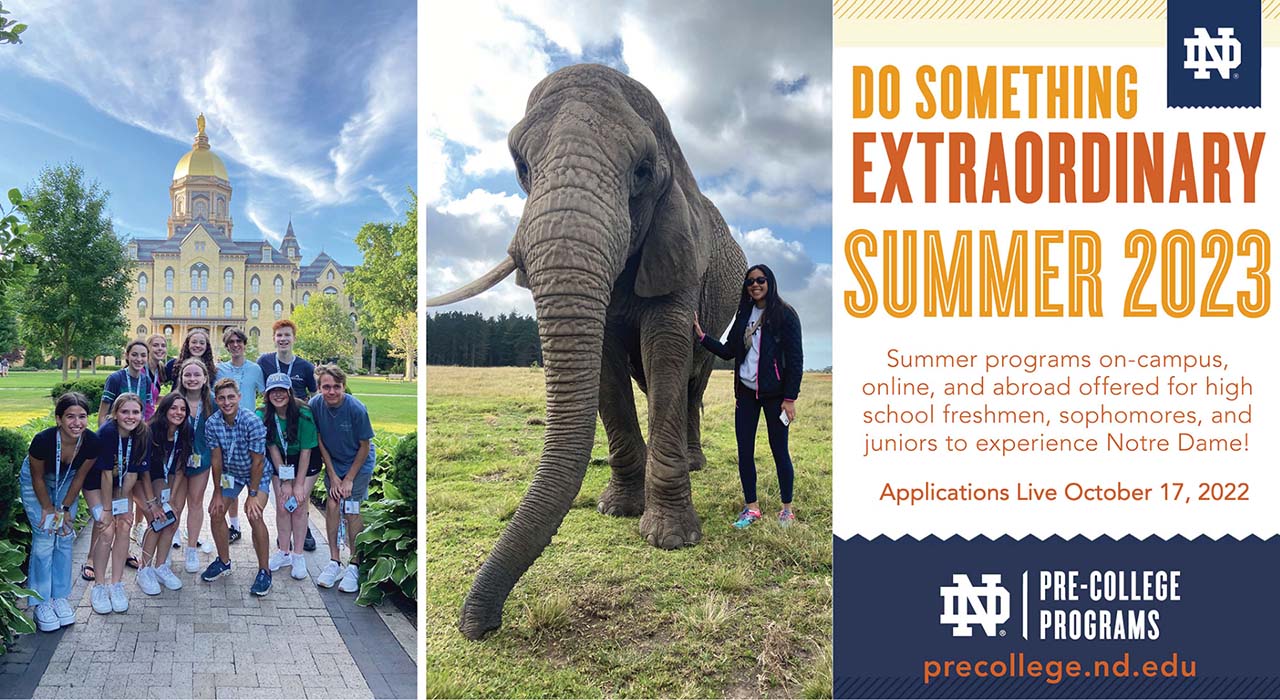 Today, students are increasingly interested in traveling and exploring new places while studying. Student trips have become an exciting and effective way to allow students to learn and experience the world firsthand. As students mature cognitively, the holistic nature of a school trip adds to their education because they allow young people practice skills like teamwork, empathy, and solidarity, among others. In essence, trips are an ideal way for them to apply in the real world many of the skills and competencies taught in the classroom.
Today, students are increasingly interested in traveling and exploring new places while studying. Student trips have become an exciting and effective way to allow students to learn and experience the world firsthand. As students mature cognitively, the holistic nature of a school trip adds to their education because they allow young people practice skills like teamwork, empathy, and solidarity, among others. In essence, trips are an ideal way for them to apply in the real world many of the skills and competencies taught in the classroom.
What Is a Student Trip and How Long Does It Last?
A student trip refers to an educational experience conducted outside the classroom, where students have the chance to learn firsthand about various topics by visiting historical, cultural, or natural sites and engaging with local communities.
The main goal is to provide a more comprehensive and interactive learning experience, fostering the development of social, intercultural, and leadership skills through interactions with people from different cultures.
The duration of a student trip can vary depending on the program, theme, and objectives. Some trips last only a few days or even hours, while others can span months or even up to a year, as in the case of long-term exchanges.
Envoys is an organization that designs programs directly in collaboration with schools. Their motto is “a belief in the transformative power of travel-based education.” Their mission “is to foster a generation of global citizens who lead with empathy and understanding.”
For Envoys, student trips are structured around key pillars that transform these journeys into impactful learning experiences. In an increasingly competitive world, empowering students to recognize their role as catalysts for change is a significant advantage. Building environmental responsibility through experiential learning and encouraging community involvement not only provides valuable tools but also shapes them into better human beings.
Traveling, whether for a short-term or long-term period, can offer numerous benefits for students. Here are some key advantages:
Short-term Trips:
- Cultural Exposure:
- Even a brief trip can immerse you in different cultures, languages, and customs, broadening your perspective and understanding of the world.
- Networking Opportunities:
- Short trips, especially if they involve academic conferences, workshops, or study tours, allow you to connect with professionals, academics, or peers in your field.
- Stress Relief:
- A break from the academic rigor can rejuvenate your mind, reducing stress and potentially improving your academic performance upon return.
- Practical Skills:
- Quick trips can teach you to adapt quickly, manage time efficiently, and navigate new environments, all valuable skills in both personal and professional life.
- Resume Boost:
- Experiences like international internships or short study abroad programs can distinguish your resume, showing future employers your initiative and adaptability.
Long-term Trips:
- In-depth Cultural Immersion:
- Longer periods allow for a deeper understanding of culture, which can lead to fluency in a new language, a more profound appreciation of cultural nuances, and personal growth.
- Academic and Career Development:
- Semesters or years abroad often include academic credits that can count towards your degree. Long-term study abroad or work experiences can also lead to job offers or further career opportunities abroad.
- Independence and Self-Discovery:
- Living in a new country for an extended period fosters independence, resilience, and self-confidence as you tackle life’s challenges without the familiar support systems.
- Global Perspective:
- Being away for an extended time helps you see your own culture and country from an outside viewpoint, enriching your global awareness and empathy.
- Personal Relationships:
- Long-term stays enable the formation of lasting friendships and networks with people from different parts of the world, which can be invaluable personally and professionally.
Both types of trips encourage stepping out of your comfort zone, which is crucial for personal development in the college years. They also add unique experiences to your life story, enhancing your narrative in both personal and professional contexts. However, the choice between short-term and long-term would depend on your academic schedule, financial situation, and personal goals.
Education
Envoys collaborates with schools and local partners to ensure that its programs align with the school curriculum and home life for both parties. The key to this experience is teaching valuable skills and mindsets while promoting a deeper understanding of learning.
Development
 Eighty percent of Envoys’ program providers are small, locally-owned businesses, and they prioritize partnerships with women-owned and women-led organizations whenever possible.
Eighty percent of Envoys’ program providers are small, locally-owned businesses, and they prioritize partnerships with women-owned and women-led organizations whenever possible.
Envoys seeks to have a positive and sustainable impact on the communities they work with. Their goal is to address issues of equity and social justice and to develop capacity and empower all involved whenever possible.
Environment
The Envoys team examines and works to mitigate each program’s impact on the natural world, evaluating the relative benefits and costs of non-renewable resources and engaging with natural spaces. Additionally, they partially offset the impact of the study program through carbon offsets.
The Importance of Destinations and Programs
When choosing, there are two key aspects to consider: the type of program and the destination. For instance, if a student is more interested in the arts, they may lean toward a destination like Paris or London. Knowing a student’s preference is essential, as it will shape the entire trip. Envoys offers a broad range of destinations worldwide, both within and outside the United States.
Regardless of the choice, all programs are built on the same pillars. These criteria have been carefully selected to ensure transformative experiences that equip students with essential tools for personal development, university applications, and optimal career growth
Transformative Education: Envoys programs emphasize the importance of practical and immersive learning, equipping students with everything they need for personal transformation and to develop a global perspective.
Personalization and Flexibility: Envoys is committed to tailoring each program to meet the expectations of both the school and students, customizing itineraries and projects for the best experience.
Focus on Educational Outcomes: These programs focus on how travel reinforces the curriculum and fosters key competencies such as communication and leadership, both essential for students’ future success.
Social and Cultural Engagement: Programs integrate impactful social projects, promoting cultural understanding and community engagement. These skills help broaden students’ perspectives, providing them with meaningful tools for the future.
Washington, DC: One of the Most Sought-After Destinations

Washington, DC, is the birthplace of American history. It’s no surprise that student trips to Washington, DC, are among the most popular programs. This program begins by exploring the National Mall and its monuments, then moves on to focus on the successes and challenges of American democracy.
The trip focuses on historical legacies that students not only study theoretically but also explore through practical exercises that help them gain a deeper understanding of the country’s history. Some places include the National Mall, the Supreme Court, a guided tour of the Capitol, and the National Museum of African American History and Culture at the Mall.
The social aspect is also very important, so students visit the National Coalition for the Homeless, where they can learn about its work.
The World Belongs to Those Who Travel
In a world where information is rapid and unfiltered, visiting, studying, and experiencing is a unique way of learning. This teaching method aims to put into practice what students have previously seen in the classroom, preparing them to face the world as capable adults.
Of course, theory is not irrelevant. As in most areas of life, theory and practice are the yin and yang of learning: both are necessary to achieve the best results.
Envoys holds a commitment as its guiding principle: to act with respect, and purpose, and leave a positive impact. Traveling is more than just moving from place to place; it’s about creating experiences that shape people who leave a profound impact. Today’s youth is the foundation of tomorrow. Training them to carry that responsibility with dignity and seriousness is one of the goals of this journey.



 Applications for Summer 2023 programming on University of Notre Dame’s campus, online, and abroad are
Applications for Summer 2023 programming on University of Notre Dame’s campus, online, and abroad are 
 TH!NKUK is like a massive multi-day virtual college information session, and it will be the largest scale event organized specifically by UK universities for a North American audience this year. TH!NKUK highlights diverse higher education opportunities in England, Wales, and Northern Ireland and will cover everything from how to submit UCAS applications to what it’s like to arrive in the UK as an international student. Best of all, participants will have the chance to engage with International Admissions Officers, academics, current UK university students from North America, and UK university alumni.
TH!NKUK is like a massive multi-day virtual college information session, and it will be the largest scale event organized specifically by UK universities for a North American audience this year. TH!NKUK highlights diverse higher education opportunities in England, Wales, and Northern Ireland and will cover everything from how to submit UCAS applications to what it’s like to arrive in the UK as an international student. Best of all, participants will have the chance to engage with International Admissions Officers, academics, current UK university students from North America, and UK university alumni.








